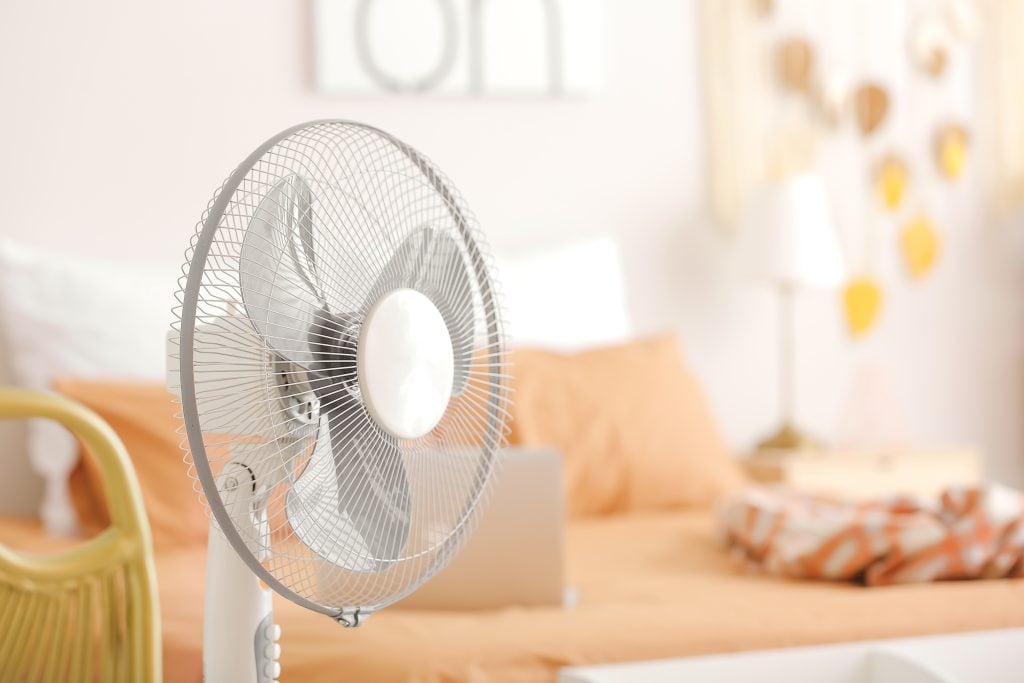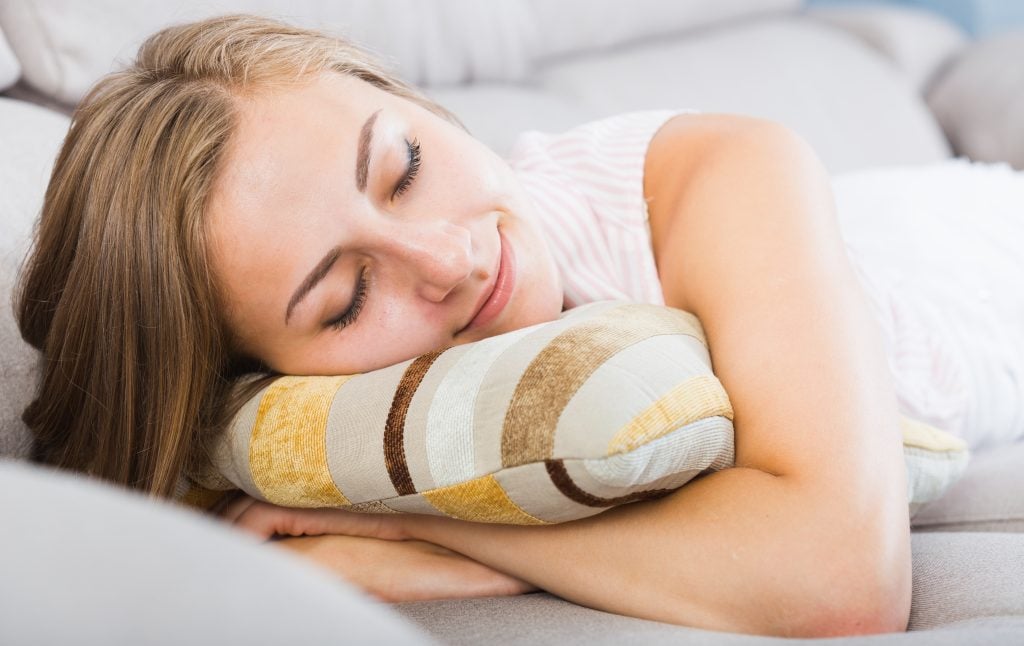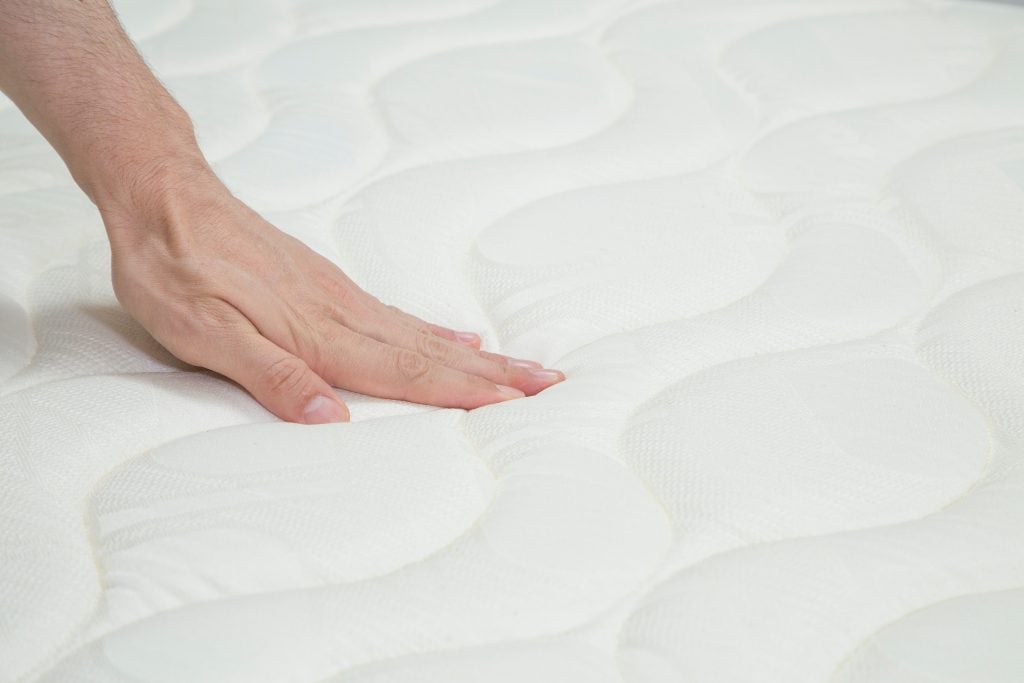During the UK’s peak temperatures, an undisturbed and restful night’s sleep often seems out of reach. Many of us try to combat the warm temperatures by plugging our fans in, hoping it’ll pave the way for a good night’s rest. However, whether you should sleep with a fan on or not is open for debate; continue reading to discover the pros and cons of sleeping with your fan on.

As you probably expect, the obvious appeal of a fan is the constant circulation of cool air the appliance provides. Despite the UK not reaching the same temperatures as many other countries, something about the UK heat just feels different; I’m sure we’ve all pondered at one point or another why the sunshine abroad is more manageable than it is in the UK. Cosmopolitan provides further insight into why this is the case and explains how; ‘The UK can get pretty humid, which means that sweat doesn’t evaporate as quickly. [Therefore] the human body finds it harder to keep cool, and we get these hot, tropical nights where the temperature doesn’t dip.’
Fans reduce the likelihood of sweating throughout the night, which is significant as too much sweating ‘may lead to a loss of important minerals that your body needs.’ and an ‘increased risk of developing a skin infection.’.
If you feel as though a better night’s rest is the consequence of your fan, the additional hours of sleep acquired ‘reduces stress, prevents inflammation, helps control weight, and is important for memory formation and clear thinking’.

Okay, this is somewhat subjective, as some people love the low-humming noise that fans make, whereas others prefer to sleep in silence. If you find the noise accompanying fans irritating, a fan may not be the best way to combat feeling too hot during the night.
For anyone with asthma or hay fever, looking for fan alternatives to keep you cool during the night may be worthwhile, as fans can ‘trigger more significant symptoms in people with conditions like asthma or skin disease.’
If you’ve ever woken up in the morning with the sensation of a ‘stuffy nose’, it could partially be a result of your fan. Livestrong explains how ‘having a direct current of air blasting your way can wick the moisture out of your body and dry up your mucous membranes’.
Of course, a mattress is a significant investment, and it could be difficult to justify replacing it solely because you’re too hot at night. However, if your mattress shows signs of wear and tear and doesn’t provide you with the support it once did, now may be the perfect time to seek a new mattress. Below are key factors to consider when choosing a mattress that’ll help to prevent overheating.

For all of the excellence and body-moulding support memory foam mattresses provide, they are renowned for their heat-retention properties. They, therefore, are deemed unsuitable for those who sleep hot. If you’re considering replacing your memory foam mattress, consider one of our brilliant gel foam or latex options for the similar benefits of memory foam but with greater air circulation and the promise of a cooler night’s sleep.
As previously mentioned, your mattress may be in fantastic condition and not require replacing. If this is the case, evaluating your duvet’s suitability is a cost-effective alternative. Every duvet features a tog rating; the tog rating indicates how well the duvet insulates heat. Our duvets vary from a tog rating of 4.5 to 15. Consider purchasing a lightweight duvet with a low tog rating for the summer and a higher tog rating for the year’s colder months.
To conclude, there is no right or wrong answer as to whether you should sleep with a fan on. If a fan has proven a great aid to your sleep during the summer months, then it makes sense to continue to sleep with your fan on. Alternatively, a new duvet or a mattress could provide the ideal solution.